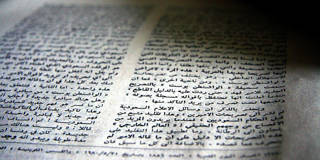The clash between secular human-rights standards and Muslim religious doctrine mirrors the broader conflict between Islam and modernity. Fortunately, an emerging school of Muslim thought addresses the question in a new way, emphasizing that the Quran, like any religious text, must be reinterpreted over time.
UPPSALA – Many in the Muslim community have long taken issue with the United Nations Universal Declaration of Human Rights (UDHR). The declaration, these critics attest, was created by colonial powers with a long history of gross human-rights violations, and amounts to yet another attempt by a few Western players to impose their will upon Muslim countries. Islamic conservatives and fundamentalists go a step further, as they declare that no human invention can equal – much less supersede – sharia law, which amounts to the word of God.

UPPSALA – Many in the Muslim community have long taken issue with the United Nations Universal Declaration of Human Rights (UDHR). The declaration, these critics attest, was created by colonial powers with a long history of gross human-rights violations, and amounts to yet another attempt by a few Western players to impose their will upon Muslim countries. Islamic conservatives and fundamentalists go a step further, as they declare that no human invention can equal – much less supersede – sharia law, which amounts to the word of God.